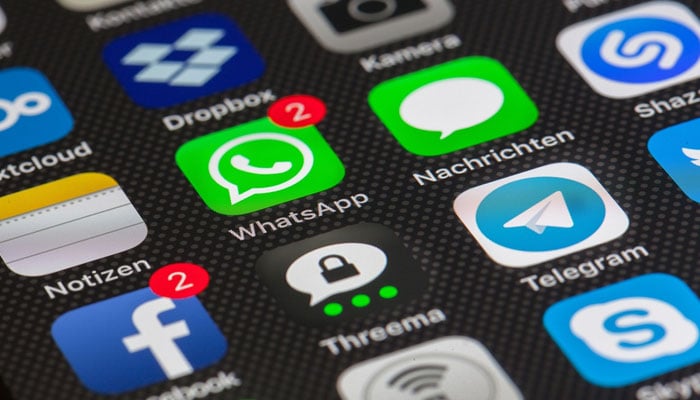Firewall being installed to rein in social media
This filter will run its check on social media platforms like Facebook, YouTube and X
ISLAMABAD: A national firewall is being installed on different internet service providers (ISPs) to rein in social media; the filters will block unwanted content from reaching a wider audience, The News has learned from four different sources.
A well-placed official confirmed when asked if the firewall had been purchased: “It is already bought. Now it is being installed and commissioned”. Pakistan is already using this technology but till now it had been limited to blocking websites and social media apps. In 2013, the filters of a Canada-based Netsweeper were installed on Pakistan Telecommunication Company Limited, Pakistan’s largest internet service provider which constitutes more than 65 per cent share in submarine cables connecting Pakistan with the rest of the world.
The latest firewall will be used to inspect information originating from different internet protocol addresses. Per an official privy to the planning, “The national firewall will serve two purposes: identify the locations from where the propaganda material is being originated and the subsequent blockade or diminished coverage of those accounts”. He added: “But, I think the main focus will remain on locating the source of such propaganda to nip the evil in the bud”.
In the new setup, there will be a keyword filtering system to detect content the government considers undesirable or prejudicial to national security etc. In such cases, the filter will act like an information inspector. These kinds of posts will likely be camouflaged and will subsequently be made invisible to outside users. Posts from all dissenting voices in and out of the country are likely to pass through this inspection before they are allowed to be made properly visible.
This filter will run its check on social media platforms like Facebook, YouTube and X (formerly known as Twitter). Preparation is also in progress to prevent the ‘misuse’ of Virtual Private Networks (VPNs) as the government can declare it mandatory for citizens to inform the PTA about the VPNs they are using. Anyone failing to do that could land in trouble.
With the government having blocked X/Twitter for several months now, many people have been accessing it through VPNs. Several of them were initially blocked, but that triggered unrest from the corporate community as VPNs are primarily used by big businesses worldwide to protect their business secrets as their internal communication travels within a private network. It was due to this that action against VPNs was stopped for some time.
Was X/Twitter’s blockade a prudent step as many people are still using it through VPNs? A government official has answered in the affirmative. He said the usage of this social media app has been cut to half -- from 4.5 million to 2.4 million -- which means it has also affected Twitter’s business in Pakistan as well. The use of bots has also been reduced. Not only that, an official said that the management of the social media company has also started paying heed to government demands, unlike the past.
One such demand was the blockade of an account of the Pakistan Ex-Servicemen Society (PESS). Maj (r) Adil Raja was using this account even after he was no longer an office-bearer of the PESS -- and refused to return control of the account. Not only that, he would tweet from this handle on behalf of the veterans and condemn the current army leadership. X (formerly Twitter) wouldn’t respond to requests generated through the PTA for a block on the account. It has been done now.
-
 Bucks Vs Thunder: Nikola Topic Makes NBA Debut As Milwaukee Wins Big
Bucks Vs Thunder: Nikola Topic Makes NBA Debut As Milwaukee Wins Big -
 King Charles Breaks 'never Complain, Never Explain' Rule Over Andrew's £12 Million Problem
King Charles Breaks 'never Complain, Never Explain' Rule Over Andrew's £12 Million Problem -
 Casey Wasserman To Remain LA Olympics Chair Despite Ghislaine Maxwell Ties
Casey Wasserman To Remain LA Olympics Chair Despite Ghislaine Maxwell Ties -
 Shaun White Is Back At The Olympics But Not Competing: Here’s Why
Shaun White Is Back At The Olympics But Not Competing: Here’s Why -
 Breezy Johnson Engaged At Olympics After Emotional Finish Line Proposal
Breezy Johnson Engaged At Olympics After Emotional Finish Line Proposal -
 King Charles Wants Andrew To 'draw A Line' Under Epstein Issue
King Charles Wants Andrew To 'draw A Line' Under Epstein Issue -
 John Wick Game Confirmed With Keanu Reeves And Lionsgate Collaboration
John Wick Game Confirmed With Keanu Reeves And Lionsgate Collaboration -
 Gigi Hadid Feels 'humiliated' After Zayn Malik's 'pathetic' Comment: Source
Gigi Hadid Feels 'humiliated' After Zayn Malik's 'pathetic' Comment: Source -
 Olympics Men Hockey Game: McDavid, Crosby Power Canada Past Czechia
Olympics Men Hockey Game: McDavid, Crosby Power Canada Past Czechia -
 Sony PlayStation State Of Play Reveals 'Castlevania' And 'Metal Gear' Return
Sony PlayStation State Of Play Reveals 'Castlevania' And 'Metal Gear' Return -
 Ontario Tuition Freeze Ends, Allowing Colleges And Universities To Raise Fees
Ontario Tuition Freeze Ends, Allowing Colleges And Universities To Raise Fees -
 King Charles Should Apologise To All Rape Victims, Says New Poll
King Charles Should Apologise To All Rape Victims, Says New Poll -
 Cardi B Shares Emotional Message Amid Stefon Diggs Split Rumors
Cardi B Shares Emotional Message Amid Stefon Diggs Split Rumors -
 James Van Der Beek’s 'heartbroken' Ex Wife Breaks Silence Of His Death
James Van Der Beek’s 'heartbroken' Ex Wife Breaks Silence Of His Death -
 Sarah Ferguson, Shamed Andrew Spotted In ‘family Costume Drama’
Sarah Ferguson, Shamed Andrew Spotted In ‘family Costume Drama’ -
 Kylie Kelce Reveals Why She Barely Planned Her Wedding Day?
Kylie Kelce Reveals Why She Barely Planned Her Wedding Day?




